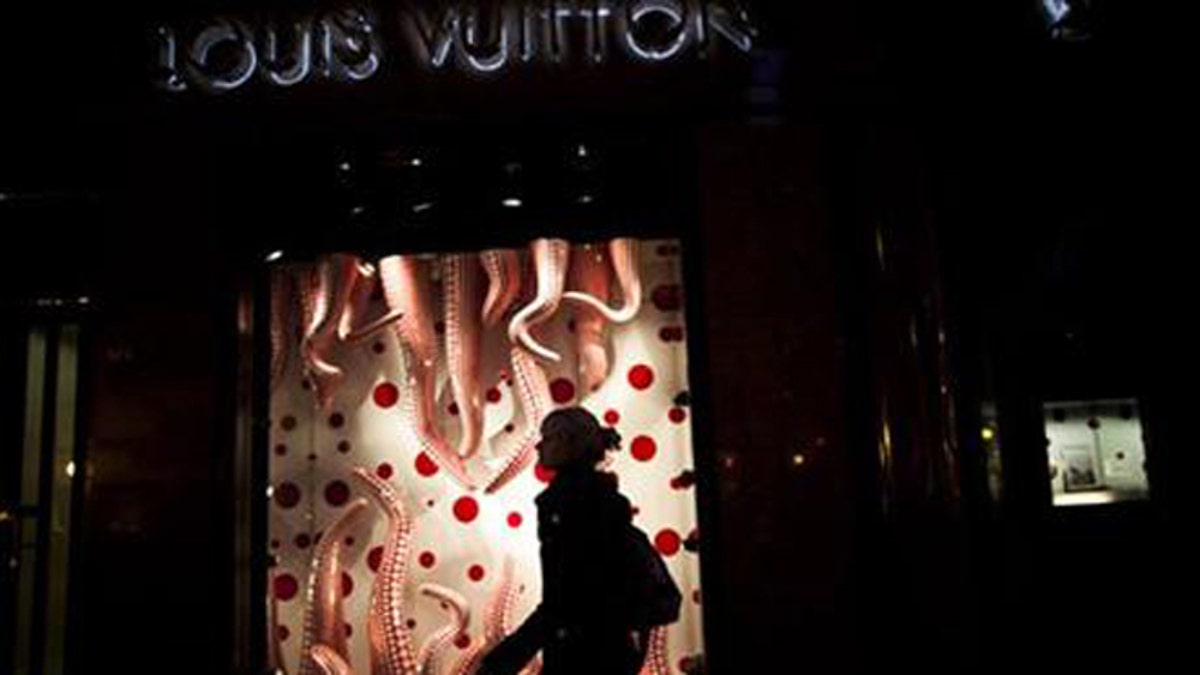
BUENOS AIRES – Avenida Alvear in Buenos Aires neighborhood of Recoleta is known internationally as a center of the luxury market, one that once rivaled Manhattan’s Fifth Avenue. It is – or was – dotted with designer labels from Cartier to Louis Vuitton to Emporio Armani.
Consultants like Bain & Company predicted it would keep growing – becoming one of the hottest markets in the world.
But tighter government restrictions have prompted Argentina’s luxury stores to slowly flee – leaving a huge vacuum in the country’s high-end market. Armani is gone. Louis Vuitton left. Ralph Lauren is shutting its doors. And Cartier is also saying bye bye.
And those top-shelf stores are also taking jobs with them. Buenos Aires says at least 200 retail jobs were lost after store after store closed shop in the city.
The reason why they are leaving is somewhat complicated: government officials are blocking import licenses until companies promise to match the cargo's value by shifting an equal amount of production or investment to Argentina. The import controls have reduced supplies to Argentine consumers who are desperate to spend or trade their pesos before they lose value, fostering an inflationary spiral and illegal currency trading.
In order to survive, several companies have taken some odd initiatives to satisfy the government and meet the tough new restrictions. A BMW dealership opened an office to help farmers export soybeans – allowing the dealership to import cars. Similar tactics are being done by Porsche dealerships with Argentine wine. Lacoste built a factory in San Juan and intends to export from there.
Guillermo Moreno, the country's secretary of Commerce, accepted the imports from Nike, Adidas, Zara and Falabella if they agree to not increase prices.
But most companies are unable to meet the new restrictions – so they are packing their bags and fleeing.
According to experts, most stores say requirements are stacked against them – and they don’t have infrastructure in place to meet the new demands.
“They respect their heritage and tradition, elements which define the brands,” said Diego Schvartzman, CEO of the consulting firm Maison du Luxe.
A store owner at Alvear, who requested not to be identified, revealed he has just managed his stocks, but does not know exactly what he is going to do in the coming months. “The products that I sell are made of porcelain. Argentina cannot supply that.”
Importers are not alone in the crisis. Alberto Riemeresma, manager of Lopez Taibo at Avenida Alvear, says he works just with Argentinean goods, the majority made from leather, but his store was also crushed by the measures.
“In the last few months, sales have plummeted. Tourists come less too,” he said. “I don't approve the restrictions.”
The restrictions on foreign freight are not the only reason for the crisis. A sky high inflation rate has also scared tourists.
Argentina is the only country in South America where tourism declined this year – by 3.4 percent. A 53-year-old Brazilian walking through Callao Avenue with Alvear said prices have frustrated her.
“I was expecting much lower prices. It is not as worthy as before, but is still cheaper than the same stores in São Paulo,” complained Maria Siqueira, a former health professional. A third of tourists in Argentina are Brazilian.
Tourism minister Enrique Meyer's downplayed the losses, and said it would have minimal impact on Argentina's economy.
"Louis Vuitton is all over the place," Meyer told Radio Mitre recently. "On the other hand, we have brands that keep on growing," and cited Argentine labels Cardon (leather jackets, purses, and other clothing), Pampero (gaucho-style khaki pants and other sturdy clothing), El Noble Repulgue (meat pies) and Freddo (ice cream).
The Associated Press contributed to this report.
